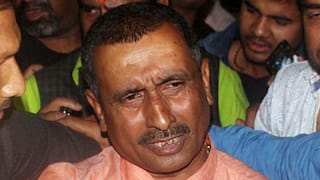Covid-Hit MSME Sector In Northeast Expects Booster Package From Budget 2023-24
MSME forms the major portion of the industries in the Northeastern states and is looking for major relief and SoPs from the Union Budget 2023-24.

Guwahati: COVID-19-hit Micro, Small and Medium Enterprises (MSME) sector, which is the backbone of the economy of the Northeastern states, is looking for major relief and sops from the Union Budget 2023-24. MSME forms the major portion of the industries in the NER and is crucial to the health of the economy.
Assam Rules In Northeast
Assam, popularly called the Gateway to Northeast India has the highest number of MSMEs, estimated at 6.62 lakhs in the region, housing numerous industries like tea, agriculture and allies, sericulture and tourism.
There are approximately over 67,000 industries in Assam, out of which 88 per cent are micro, 11.5 per cent are small and medium.
According to a survey, the numbers of MSMEs in the Northeastern region, including Sikkim, accounts for a total of 10.64 lakh.
Recently, the Central Government has sanctioned over Rs 1,536 crore to set up micro, small and medium enterprises under the Atmanirbhar Bharat Abhiyan.
Booster Package Expected
The MSME sector contributes 33 per cent of India's Gross Domestic Product (GDP) and creates 120 million jobs across all industries, making it a key sector in the country's economy.
However, the MSME sector is dealing with several issues after the COVID-19 pandemic and is expecting a booster package from the Union Budget.
MSMEs in the Northeast region are facing numerous challenges from the global COVID-19 pandemic to increasingly tougher competition – not only against their counterparts from outside the region but also from large entities.
Lack of infrastructure, adequate capital, and inadequate market linkages are the hindrance to the growth of the MSME sector.
The United Nations Development Programme (UNDP) has been working closely to assist the development of the MSME sector across India and have been assisting many MSMEs in Northeast India and most recently to sustain and weather the challenges related to the COVID-19 pandemic.
In Northeast India, MSMEs play a crucial role in the region’s development. Despite only accounting for 1.5 per cent of India’s MSMEs, in Northeast India they contribute nearly 62 per cent to the economy in terms of employment, output and exports.
“Northeast MSMEs are eagerly looking forward to the NE Industrial Policy announcement in the Union budget. What the MSMEs and Investors are expecting in ensuing union budget is central government’s policy decisions for a modified version of NEIIPP 2007 and revival of mandatory 10 per cent budget allocation of ministries for the Northeast region with non-lapsable pool,” former chairman of Federation of Industries and Commerce of Northeastern Region (FINER) R S Joshi told ABP Live.
“All Central PSUs need to invest 10 per cent of their CAPEX for Northeast Region which in turn will provide sustainability to Northeastern states economy and resultant job-work for MSME ancillary units will go a long way in genuine industrialization of the region which would do away with culture of ‘Fly by night operators’ suited to some unscrupulous elements,” said Joshi.
“DONER ministry’s budget should get a quantum jump for doing justice to the object for which it was set up. One big help for MSMEs would be to provide them with developed industrial Sheds & Plots at concessional rates as the market cost of land is prohibitive for MSMEs. Availability of Hassle-free finance is another area where through the union budget, the government can announce measures to support Ease of doing business,” he added.
“NEIIPP 2007 was the Central Government’s industrial policy for the Northeast Region which lapsed and as on date no central policy is in place. The border trade is another area. Government may ask NITI AAYOG to study the revolutionary idea of declaring the border belt/Corridor as TAX FREE ZONE with the neighbouring countries,” Joshi said.
Speaking to ABP Live, Adviser, North Eastern Tea Association (NETA), Bidyananda Barkakoty said, “There is a demand supply mismatch in the supply chain of tea in India. Supply is more than demand. To overcome this problem, we appeal to the government to earmark funds in the budget for generic promotion of tea in the domestic market as well as in foreign markets. Also, we appeal for a special scheme in the budget for tea exported directly from Northeast India. This scheme could be under the Act East Policy of Government of India.”






































